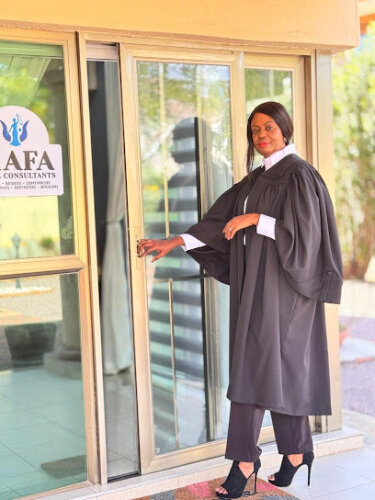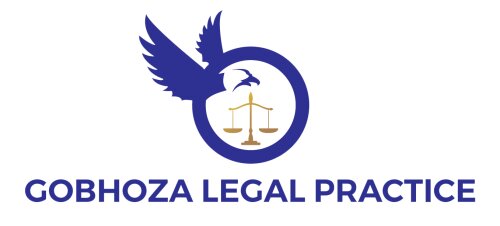Best Sustainable Finance Lawyers in Gaborone
Share your needs with us, get contacted by law firms.
Free. Takes 2 min.
List of the best lawyers in Gaborone, Botswana
About Sustainable Finance Law in Gaborone, Botswana
Sustainable Finance is an emerging field that integrates environmental, social, and governance (ESG) considerations into financial decision-making. In Gaborone, Botswana, Sustainable Finance law guides businesses and investors as they embrace practices that support environmental protection, social well-being, and sound corporate governance. With Botswana's focus on diversifying its economy and meeting international sustainability standards, legal guidance is crucial for both local and international entities seeking to align their investments and operations with sustainable goals. Sustainable Finance law in Gaborone covers a range of issues such as green bonds, social impact investments, and compliance with global sustainability frameworks.
Why You May Need a Lawyer
There are various situations where seeking legal advice on Sustainable Finance is important:
- When structuring green or social impact investments to ensure they meet local and international compliance requirements
- Navigating the regulatory landscape for issuing green bonds or sustainability-linked loans
- Drafting contracts or agreements with sustainability clauses that accurately reflect financial and ESG obligations
- Understanding reporting and disclosure requirements for sustainable projects and investments
- Managing stakeholder relationships and expectations, particularly where sustainability concerns are priority
- Resolving disputes regarding the implementation of ESG mandates
- Securing government incentives or approvals for environmentally friendly or sustainable projects
- Ensuring company policies align with evolving sustainability standards
Local Laws Overview
Key aspects of Sustainable Finance law in Gaborone are shaped by both domestic legislation and Botswana’s commitments to international agreements. The Financial Intelligence Act and Companies Act are central in ensuring transparency and accountability in financial transactions. The Environmental Assessment Act mandates impact assessments for large projects, directly linking environmental considerations to financial activities. Botswana’s financial sector is guided by the Bank of Botswana and the Non-Bank Financial Institutions Regulatory Authority (NBFIRA), both of which are increasingly recognizing the importance of ESG integration. For companies involved in Sustainable Finance, there are evolving requirements to standardize disclosure of environmental and social impacts, as well as to participate in green finance programs encouraged by both government and international organizations.
Frequently Asked Questions
What is Sustainable Finance?
Sustainable Finance refers to financial services that integrate environmental, social, and governance (ESG) criteria into business or investment decisions, promoting sustainable economic development.
Are there specific laws on green bonds in Botswana?
There is no dedicated green bonds law, but green bond issuances are governed by general financial and securities regulations, including the Companies Act and oversight from the Botswana Stock Exchange, which is increasingly aware of the need for sustainability criteria.
How does the Environmental Assessment Act affect financial projects?
If your project has potential environmental impacts, the Act requires an environmental impact assessment before funding or implementation. This process helps ensure your project aligns with sustainable finance objectives and legal requirements.
What role do regulators play in Sustainable Finance?
Regulators such as the Bank of Botswana and NBFIRA oversee financial markets and encourage the adoption of sustainable finance practices, including transparent ESG reporting and risk management in financial institutions.
Can foreign investors participate in Botswana's Sustainable Finance sector?
Yes, foreign investors can participate, but they must comply with all relevant Botswana laws, including those related to investment, environmental protection, and corporate governance.
What incentives are available for sustainable projects?
The Botswana government and certain development agencies offer incentives such as tax benefits, grants, or preferential lending for projects with strong environmental or social impacts. Incentives vary depending on specific programs and current government policy.
Do I need a lawyer to draft sustainability-related agreements?
While not mandatory, it is highly advisable as lawyers ensure agreements are legally sound, reflect sustainability objectives, and comply with local regulations and best practices.
How are social impact investments regulated?
Social impact investments must comply with the same financial and corporate laws as other investments, but also require specific attention to the social objectives and contractual terms that govern expected outcomes.
Are there reporting requirements for sustainable finance projects?
Many projects are subject to ESG disclosure requirements set by regulators, lenders, or investors, which necessitate transparent reporting of progress and impacts. These requirements are becoming more common in both private and public sectors.
Where can I find legitimate legal advice on Sustainable Finance in Gaborone?
Seek advice from law firms with expertise in finance, environmental, and corporate law, or consult with the legal departments of major financial institutions, industry associations, or government agencies specializing in sustainability.
Additional Resources
If you seek more information or support regarding Sustainable Finance in Gaborone, consider these resources:
- The Bank of Botswana - regulator for banking and monetary policy matters relating to Sustainable Finance
- The Non-Bank Financial Institutions Regulatory Authority (NBFIRA) - regulatory authority for non-bank financial institutions
- Botswana Stock Exchange - provides guidance on securities and green investment instruments
- Ministry of Finance - responsible for economic policy and public finance, including sustainability initiatives
- Environmental Affairs Department - guidance on environmental assessments and compliance
- Local law firms with a specialty in finance and environmental law
- Industry associations and business chambers that promote sustainable business practices
Next Steps
If you need legal assistance with Sustainable Finance in Gaborone, start by identifying your specific issue, such as investment structuring, compliance, or contract drafting. Research and approach qualified lawyers or law firms with Sustainable Finance expertise. Prepare your questions and gather any relevant documentation about your project or investment. Schedule an initial consultation to discuss your situation, understand your legal obligations, and create a clear plan of action. Staying informed and obtaining professional legal guidance will help ensure your financial initiatives in Gaborone meet both local and international sustainability standards.
Lawzana helps you find the best lawyers and law firms in Gaborone through a curated and pre-screened list of qualified legal professionals. Our platform offers rankings and detailed profiles of attorneys and law firms, allowing you to compare based on practice areas, including Sustainable Finance, experience, and client feedback.
Each profile includes a description of the firm's areas of practice, client reviews, team members and partners, year of establishment, spoken languages, office locations, contact information, social media presence, and any published articles or resources. Most firms on our platform speak English and are experienced in both local and international legal matters.
Get a quote from top-rated law firms in Gaborone, Botswana — quickly, securely, and without unnecessary hassle.
Disclaimer:
The information provided on this page is for general informational purposes only and does not constitute legal advice. While we strive to ensure the accuracy and relevance of the content, legal information may change over time, and interpretations of the law can vary. You should always consult with a qualified legal professional for advice specific to your situation.
We disclaim all liability for actions taken or not taken based on the content of this page. If you believe any information is incorrect or outdated, please contact us, and we will review and update it where appropriate.
















